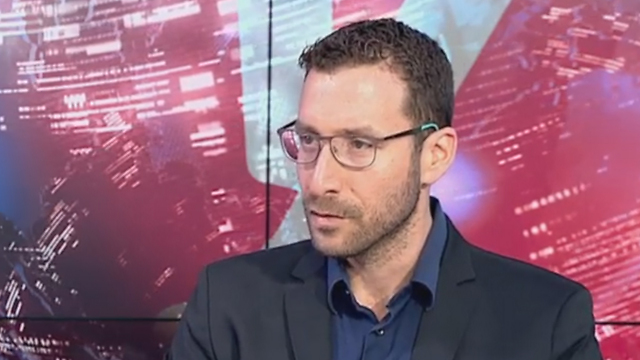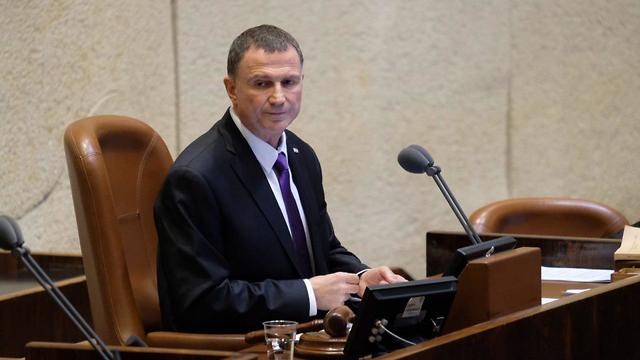
Foreign Ministry: Proposals to recognize Armenian genocide could benefit Erdogan
In official statement, Israel's Ministry of Foreign Affairs says it advised Prime Minister Netanyahu to postpone a discussion on bills to recognize the Armenian genocide until after Turkey's presidential election, explaining vote might help Turkish president get reelected.
State officials noted that the prime minister had decided to postpone the discussion following a recommendation from professional sources, who said that raising the issue before the Turkish elections would help Erdogan's campaign and unite the Turkish people.
The Ministerial Committee for Legislation was supposed to vote on two bills to recognize the Armenian genocide on Sunday, one proposed by Knesset Member Itzik Shmuli (Zionist Union) and another by MK Amir Ohana (Likud), but the votes were postponed at Netanyahu's request.
MK Shmuli said in response to the Foreign Ministry's statement Sunday morning, "That's a false and ridiculous explanation. If foreign ministries in the world had acted in such a cowardly and utilitarian manner when recognizing the Jewish Holocaust, where would we be today? The Jewish state's prime minister shouldn’t have to dance to Erdogan's tune and play an active role in denying that people were massacred in concentration camp and marches of death, but should do what he should have done a long time ago."
Knesset Speaker Yuli Edelstein told Ynet in response to the Foreign Ministry statement, "For the sake of all of us, we should put an end to this issue and it shouldn't be linked to the relations with Turkey. It's our moral duty."
Edelstein rejected the ministry's recommendation, saying that "the Foreign Ministry's response hasn't changed for the past 30 years. There was no element of surprise here, but it's something I have been trying to explain for years. In most countries, the the genocide that took place a little over 100 years ago wasn't recognized by governments, but by parliaments."
He added that "there are about 30 parliaments around the world, including the French congress and parliament, that have recognized the genocide. I believe the Knesset, the Israeli parliament, must make a similar move. The government always has diplomatic considerations, considerations in the area of bilateral relations with different countries. The Knesset must make the right, moral and obvious decision."
A week and a half ago, the Knesset passed another proposal—by Meretz leader Tamar Zandberg—to recognize the Armenian Genocide with 16 supporting the move, and 10 opposing it in the sparsely-filled chamber.
However, official recognition remains unlikely since it requires the approval of the government.
Unlike 30 other nations that have already officially recognized the Armenian Genocide, Israel had yet to make a decision on the matter. In 2016, the Knesset's Education, Culture, and Sports Committee decided to recognize the genocide and called on the Knesset and government to do so as well.
"The Knesset has taken some steps in this direction," Edelstein said. "In 2015, we managed to transfer the issue to the Education Committee, which made an unequivocal decision on this issue, but there is still no Knesset decision. I hope that a majority will be created in the coming weeks and we'll be able to reach a proposal that will finally put an end to the ambiguity over this issue and to the vague Israeli stance. And the government, as I said, doesn't have to intervene in this issue. It's the parliament's decision.
"Personally, I think that passing this law won't be a disaster. I can already tell you what the response will be in the relevant countries that are against it. There will be a lot of anger, a lot of screaming for a week or two, and then it will pass.
"I haven't heard that Turkey is in a deep crisis with France, for example," the Knesset speaker added. "France was one of the first countries to recognize the Armenian genocide. It's important for me to clarify that I see no connection between the Knesset's decision on the Armenian genocide and the nature of our relations with Turkey. There were ups and downs, and we dealt with this issue even before Erdogan came along.
"Of course we shouldn’t help Erdogan win the elections, but on the other hand, I haven't heard that Erdogan has a serious rival who will surely lose only if we avoid helping Erdogan."
The Ottoman government's systematic extermination of 1.5 million Armenians, mostly citizens within the Ottoman Empire, took place from 1915 to 1917.
Despite extensive historical research into the Ottoman Turks’ extermination of the Armenian population, Ankara disputes the figure of 1.5 million, insisting that it was significantly lower and arguing that the victims died as part of the civil war rather than a systematic murder program.
For years, the sensitive issue has been a focus of Turkey’s foreign policy, with the country applying pressure on countries to refrain from recognizing it as genocide and imposing sanctions on those who do.
In April 2015, the world marked 100 years since the beginning of what some historians describe as the first holocaust. The same month, Turkey recalled its ambassador from the Vatican after Pope Francis described it as genocide.
Attila Somfalvi and Alexandra Lukash contributed to this report.



















